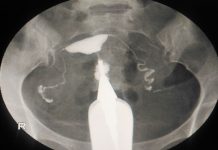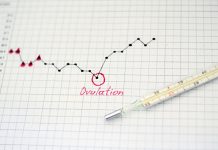In this Article
- What Are Birth Control Pills?
- Types of Contraceptive Pills
- Deciding the Pill Type
- How Safe Are Birth Control Pills?
- When Can You Start Taking the Pill?
- Will You Need Any Backup Method?
- How Do Contraceptive Pills Work?
- How Soon Do the Pills Start Working?
- How to Take Birth Control Pills
- How to Make the Pills Work Best for You?
- Can You Use the Pills While Breastfeeding?
- Effectiveness of Contraceptive Pills
- Benefits
- Risks
- Side Effects
- Symptoms That Indicate a Serious Problems
- Medications That Make the Pill Ineffective
- What If You Forget to Take Pregnancy Pill?
- FAQs
Contraceptive pills are medicines prescribed to women which, when taken in accordance with the menstrual cycle, can help prevent an unwanted pregnancy. Scientific advancements have made contraceptive pills an effective, safe, and affordable method of birth control.
What Are Birth Control Pills?
Birth control pills are pregnancy prevention pills (also known as Oral Contraceptive Pills or OCPs) which contain the female hormones namely estrogen, progesterone or both in fixed doses. These pills are devised to manipulate the hormonal levels during each menstrual cycle in order to prevent ovulation and hence pregnancy.
Types of Contraceptive Pills
Various forms of hormonal contraceptive pills are now available commercially. Most tablets contain either progestin (progesterone) alone or a combination of progestin with estrogen in a fixed proportion.
1. Progestin-Only Pills
Progestin-only pills or POP contain only progestin (a synthetic form of the human natural hormone progesterone) and have no estrogen content. POPs need to be taken orally on all days of the normal menstrual cycle. Since a normal menstrual cycle lasts 28 days, these pills are available in blister packs of 28 tablets. Unlike certain other formulations, one needs to consume these tablets on a regular and daily basis for optimum results. Taken as prescribed, you should ideally get your next period 28 days from the day you took your first pill of the blister pack. You might experience irregular cycles or abnormal spotting in the initial few months, discuss this with your doctor. POPs are associated with fewer side effects due to the absence of estrogen, like weight gain, etc.
2. Combination Pills
Combination pills contain progestin as well as estrogen.
These pills are further classified according to the dose and proportion of progestin hormone, as follows:
- Mono-phasic Pill: fixed estrogen and progestin dose.
- Bi-phasic Pill: fixed estrogen, while progestin dose is increased halfway through the cycle
- Tri-phasic Pill: three different doses of estrogen and progestin that change every 7 days
- Four phasic Pill: offer 4 different doses of estrogen and progestin in a 28 days course
- Ninety-One Day Pill: contain a fixed dose of estrogen and progestin for 84 days.
These pills are available in 28 or 21 days blister packs. Like other formulations, these combination pills are initiated with the beginning of the menstrual period and continued till you get your next cycle. The only difference in the 21-day blister pack, is that only the first 21 tablets contain the active hormones, while the last 7 tablets are ‘dummy’ tablets with no active medication. The purpose of these 7 blank tablets is to keep you in a habit of taking daily pills and also provide a ‘pill free period’ to curtail the unwanted side effects of estrogen. Taken time to time as advised, each blister pack should last for 28 days of your menstrual cycle, and you should ideally get your menses in the last week of the course, while you are taking the dummy tablets.
Since oral contraceptive pills (OCPs) are associated with irregular menses, you might not get your periods on time as expected, consult your gynecologist regarding the same. Continuous minimal spotting might be noticed in a few women while on OCPs.
3. Emergency Contraceptive Pill
These pills contain low doses of levo-norgesterol (an estrogen analogue) and are supposed to be taken within 72 hours of unprotected sexual intercourse to prevent pregnancy.
Deciding the Pill Type
Based on your physical parameters and hormonal or menstrual response, your gynecologist may put you on either a combination pill or a progestin-only pill course. The response to different pill regimens is subjective for different women, and compliance for these medications is the best tool to decide which type of OCP is best suited for you.

How Safe Are Birth Control Pills?
Generally, oral contraceptive pills are safe for most women with no existing medical conditions or long-term medications. However, there are certain conditions in which your doctor would adjust the dose or might advise another method of contraception to avoid side effects and drug-drug interactions.
Following is a list of conditions and medications in which case you might have to avoid OCPs;
- Pregnancy and the initial few weeks after delivery: Pregnancy itself is a natural method of contraception, so if you are pregnant, there is no way your body can conceive another child and you don’t need contraception. The initial 4-6 weeks after delivery when you are exclusively breastfeeding, OCPs are better avoided.
- History of past or pre-existing cardiac problems, such as coronary diseases, heart failure, or valvular conditions.
- Long bone fractures, morbid obesity, stroke, or bedridden conditions, predisposing to venous thrombosis in the lower limbs.
- Hereditary coagulation disorders
- Long-standing or complicated hypertension or diabetes mellitus
- Connective tissue diseases, like systemic lupus erythematosus
- Hepatic or liver malignancy, chronic liver disease
- Patients on long-term warfarin, or anti-epileptic drugs
When Can You Start Taking the Pill?
Post delivery, the coagulation system is still hyperactive (pro-thrombotic and pro-atherogenic), it is advisable to wait for a period of around six weeks before starting OCPs to avoid any thrombo-embolic complications.
You may choose either abstinence from sexual intercourse or another method of contraception like condoms during this period. Once your menstruation resumes, it confirms that you aren’t already pregnant (if you have had unsafe sex) and also that you are ready to ovulate like used to before pregnancy. It is now safe to begin your oral contraceptives on the first day of your menstruation. Since OCPs are not effective in preventing pregnancy from day one, it is advisable to continue barrier contraception for the first few days or week, as a backup plan after starting OCPs.
Will You Need Any Backup Method?
To ensure safety against pregnancy, it is advisable to use another reliable method of contraception for at least 7-8 days after initiating oral contraceptive pills. Your partner may use a condom, since it has good results in birth control, besides protecting both of you from sexually transmitted diseases. Using a backup method definitely has an additive effect and raises the success rate of birth control when compared to a single method.
How Do Contraceptive Pills Work?
Oral Contraceptive pills mainly work either by one or both of the following mentioned mechanisms:
Ovulation Prevention: Ovulation is the formation and release of a mature ovum or egg from the ovaries of a female. It usually occurs on the 14th day of the menstrual cycle. The human sperm has a shelf life of around 4 days in the female genital tract, while the ovum lives for just 2 days. If unprotected sexual intercourse has taken place during this period of ovulation, the deposited sperm fertilises the mature ovum or egg. OCPs prevent ovulation by manipulating hormonal levels of estrogen, progesterone and hence Leutinizing Hormone (LH) and Follicle Stimulating Hormone (FSH) which mainly control ovulation.
Spermicidal properties: OCPs thicken the cervical mucosa and create an acidic medium in the tract, which makes it unfavorable for the entry and survival of the sperm in the female genital tract.
How Soon Do the Pills Start Working?
Combination pills started exactly on the first day of your menstruation, offer immediate protection against pregnancy. However, if the pill wasn’t started alongside your menstruation, it may take up to seven days for it to offer protection. It is advisable to either refrain from intercourse or use a condom while having sex during this period.
Women who have started on the POP or Progestin-only pill, should either wait or use a backup method like condoms for the first two days for the pills to offer reliable protection. Also, if you miss a POP, better use a barrier for the next two days with your following pills.
How to Take Birth Control Pills
Birth control and contraception should be discussed with your partner and your doctor to help you choose the best suitable option. Once you are motivated to use OCPs, you should follow your doctor’s prescription, carefully read the user instructions with the blister packs. You should have extra blister packs, condoms, and emergency contraceptive pills always available with you.
Based on whether you have been given the 21 or 28 days course, beginning on day 1 of your menstrual period, you can start taking one oral tablet daily and continuously. The idea is to deliver active hormone in pills on the first 21 days of your cycle. The remaining 7 tablets are usually blank, sugar tablets or in some cases may contain low dose progesterone.
It is essential that you take the tablets regularly, preferably on the same time every day, irrespective of the frequency of sexual intercourse during the course. Unless you have unbearable symptoms, like vomiting, gastritis or diarrhoea, or any of the red flag signs described, do not discontinue the tablets in the middle of the course, as this may expose you to the risk of pregnancy.
Consult your doctor for any side effects due to the tablets. You may compensate an isolated missed dose, by repeating it as early as possible before the next dose. If you have been regular and compliant with your OCP regimen, you should mostly get your next menstrual bleeding started at the end of 28 days from the beginning of the course. This rules out a pregnancy, confirms that the OCP is working for you, and hints at starting the next blister pack.
How to Make the Pills Work Best for You?
Failure to take their OCPs regularly as prescribed, giving up the course due to unwanted side effects, and not keeping regular follow-ups with their gynecologists, are the commonly known reasons for failure of OCPs. The following few steps can help make these pills best work for you:
- Keep an alarm, a diary, or using an app to remind you to take the pill.
- Place the pillbox in your daily utility case or bag.
- Your partner or other family members taking regular medications (pill buddies) can help remind you to take the pill.
- Avoid too much tea and coffee, as these reduce the absorption of drugs.
- Avoid smoking and alcohol consumption to improve the efficacy.
- Avoid taking other long-term medications, or take your doctors advice regarding them, as OCPs have a lot of common drug interactions, which reduce the efficacy of these OCPs.
- Follow up with your gynecologist regularly.
- Do not succumb to side effects with the medications, they can be avoided with your doctor’s advice and simple lifestyle modifications.
- Since OCPs aren’t 100% effective, use a condom while having intercourse for better safety (against STDs) and efficacy (birth control).
Can You Use the Pills While Breastfeeding?
Barrier or physical methods of contraception like the use of condoms by the male are ideal for nursing mothers. Hormonal contraceptives are better avoided during breastfeeding. If you are advised hormonal contraception due to other indications, progestin-only pills are preferable. Estrogen is known to hamper the amount of milk produced by the mother. It is also better avoided in the first six weeks after delivery since pregnancy and estrogen both are pro-thrombotic and can increase the possibility of having blood clots especially in the large veins of the lower limbs.
Effectiveness of Contraceptive Pills
Overall efficacy of oral contraceptive pills is found to be around 97%, but practically it is accepted to have a success rate of 91% with the use of hormonal contraception only.
Good compliance with your medications, coordination with your partner and regular follow-ups with your gynecologist are the key factors for success in birth control with hormonal contraceptives.
Simultaneous use of other contraceptive methods, like condoms, can further improve the rate of pregnancy prevention significantly.
Benefits
Following are the key benefits of OCPs
- Reversible: Unlike intrauterine devices (IUDs), OCPs can be safely discontinued whenever a pregnancy is desired and hence make for an easily reversible method of contraception.
- Menstrual Benefits: OCPs can help regularize your menstrual cycles (however, it may be a cause of irregular menses in few cases).
- Affordable and Customizable: OCPs are now included under many government-subsidized schemes.
- Cancer Protection: OCPs help reduce the chances of ovarian and uterine cancers in women.
- Treatment of Osteoporosis: OCPs are vital in the hormonal replacement therapy (HRT) of osteoporosis in postmenopausal women.
Risks
Following are the major risks associated with the use of oral contraceptives.
- They do not protect against sexually transmitted diseases or STDs.
- OCPs may interfere with the action of other drugs you may be taking, like warfarin, etc.
- There is also significant hypertension and stroke risk.
- OCPs are associated with breast cancer and cervical cancer.
- OCPs are pro-coagulants and should be used with caution in people with coagulation disorders and smokers.
- OCPs require a doctor’s prescription and need to be taken stringently on a regular basis daily.
Side Effects
Oral contraceptive pills are associated with certain side effects when used for a significant period of time. Although most of these side effects are mild, they might be quite distressing for some women :
- Gastritis and nausea
- Increase in body weight
- Swelling and tenderness of the breasts
- Occasional spotting and irregular menses
- Mood swings
Use of oral contraceptive pills may be associated with a few serious symptoms including liver disorder, cardiac problems, or stroke associated with their use.
Symptoms That Indicate a Serious Problems
Following is a list of red flag signs while on oral contraceptives, which indicate that you should immediately consult your clinician
- Acute chest pain
- Dyspnea or shortness of breath
- Hemoptysis or blood in sputum
- Acute abdominal colicky pain
- Unilateral swelling of leg, calf tenderness, or thigh pain
- Migraines or throbbing headaches which begin or worsen after initiation of OCPs.
- Slurring of speech, tingling or numbness, visual blurring, weakness of either limb.
- Hepatic dysfunction: persistent vomiting, yellowing of skin, eyes, and urine, right sided pain or generalized distension of abdomen.
Medications That Make the Pill Ineffective
Oral contraceptives are known to have several drug interactions. Your doctor might provide you with a list of such drugs and chemicals which include,
- Anti-tubercular drugs
- Anti-fungal agents (like griseofulvin)
- Barbiturates and few other sedatives
- Anti-retroviral drugs Zidovudine and Stavudin.
- Anti-epileptic drugs like Phenytoin Sodium
Commonly used antibiotics do not have significant interactions with OCPs and are generally permissible.
What If You Forget to Take Pregnancy Pill?
Missing your oral contraceptives while you are sexually active certainly carries the risk of an unwanted pregnancy. The risk, however, depends on certain factors, like which dose was missed, how many doses have been missed and whether or not another backup method like condoms, was used while having sexual intercourse.
Here are some guidelines for protecting yourself:
- If you have missed a single daily dose of an active hormone pill, you may take it at the earliest continuing the further course at the usual time.
- You need not repeat the dose, if you have missed one of the dummy tabs in the last seven days of the course.
- If you had unprotected sex before starting another pack, it is advisable to take an emergency contraceptive pill.
- If you couldn’t start your pack on time (i.e. from the first or fifth day of your periods, as instructed by your doctor), it is better to resort to barrier method of contraception, like condoms.
- You may contact your doctor in case you have missed more than two doses, or have had repeated unsafe sex during this period, or if you have any unusual symptoms.
- Using pillboxes, drug reminder applications, and alarms can help you remember to take your OCPs on time.
FAQs
What If I Vomit Or Have Diarrhoea After Taking The Pill?
If once a while you vomit immediately after consuming an OCP, you may take another pill instantly and continue your course as usual. If you are suffering from food poisoning or hepatitis or any form of gastro-enteritis wherein you have persistent vomiting and loose motions, you should consult your doctor. You might have to either temporarily discontinue OCPs and abstain from having unsafe sex if you want to avoid being pregnant, or you might have to switch over to another method of birth control till you recover completely.
When Can I Start Another Birth Control Pill Pack?
Depending on whether you are on a 21-day course or a 28-day regimen, you will start your next pack of oral contraceptive pills right after you finish your previous blister pack. This would usually coincide with the beginning of your next menstrual period. Irrespective of whether you get menses or no, you should start another blister pack of birth control pills.
What If I Decide To Get Pregnant Again?
When you plan to conceive while on OCPs, all you have to do is stop taking the pills. As soon as you discontinue the course, you are likely to get your menses started. This marks the beginning of your next menstrual cycle, which will see ovulation around the 14th day. You may plan sexual intercourse in this fertile period for a pregnancy. Few clinicians may advice waiting for a few normal regularly spaced menstrual cycles before you conceive. You should take your clinician’s advice before stopping or altering your OCP course in order to conceive safely.
Does The Pill Protect From STD?
Although oral contraceptive pills prevent pregnancy quite effectively, unfortunately, they don’t offer any protection against sexually transmitted diseases (STDs). Barrier contraceptives like condoms, on the contrary, provide protection from all forms of STDs besides also serving as an effective birth control measure.
Which Are The Other Birth Control Options?
Besides hormonal contraceptives following are the other options for birth control:
- Calendar method: Avoiding intercourse around the ovulation period or the 14th day of menses.
- Spermicide gels: locally applied to the female cervix before intercourse.
- Barrier methods: Condoms, vaginal rings, and diaphragms
- Intrauterine devices: Copper T
- Sterilization techniques: Tubectomy and hysterectomy
Is It Necessary To Take A Break From Pill Occasionally?
No, it is not necessary to take a break from OCPs unless you have significant side effects due to prolonged use. However, you may switch over to other methods as and when desired or advised by your health practitioner. Remember, unless you completely switch to another method, after stopping OCPs, you are at a fair risk of getting pregnant.
What If I Miss My Dose?
If due to some reason, you happen to miss your dose of OCPs, either try and avoid having sexual intercourse or ensure your partner uses a condom. You may take your missed dose without causing any gap in the course.
With recent medical advances, oral contraceptives are one of the most preferred methods of birth control practised by women worldwide. It ensures safety and reliability when used correctly according to a medical prescription. It also protects women against ovarian and uterine cancers.









